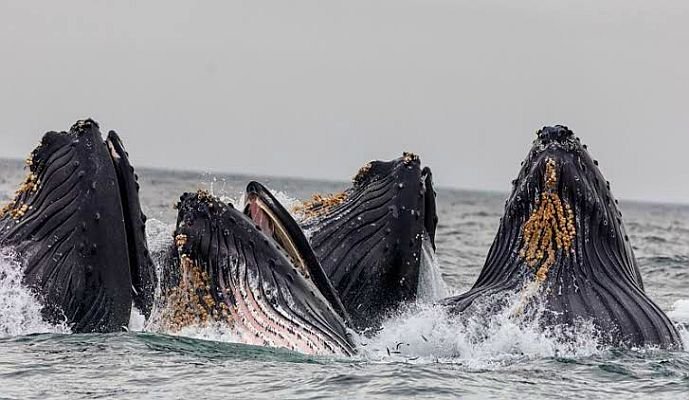If we want to halt or even reverse global warming, we need to find a way to get carbon dioxide out of the atmosphere — and increasing the number of whales on Earth might be our best option.
For a new International Monetary Fund report titled “Nature’s Solution to Climate Change,” researchers did the math and found that a single whale absorbs an average of 33 tons of carbon dioxide over the course of its lifetime, trapping that carbon far away from Earth’s atmosphere when it dies and sinks to the bottom of the ocean.
But according to the authors of the IMF report, the carbon-sucking potential of whales far outweighs that of trees. They found that a tree can only absorb upwards of 48 pounds of CO2 per year, meaning even if a tree lives to be a hundred years old, it’d still absorb just 2.4 tons of carbon compared to a whale’s 33 tons.

Whales do more than just trap carbon in their bodies. They also produce waste that phytoplankton need to grow — and researchers estimate that those microscopic creatures capture 40 percent of all carbon dioxide produced.
For that reason, the authors of the IMF report believe whale preservation should be at the top of the global climate agenda.
“Nature has had millions of years to perfect her whale-based carbon sink technology,” the authors wrote. “All we need to do is let the whales live.”
Reference- IMF Report, Futurism, National Geographic, TIME






